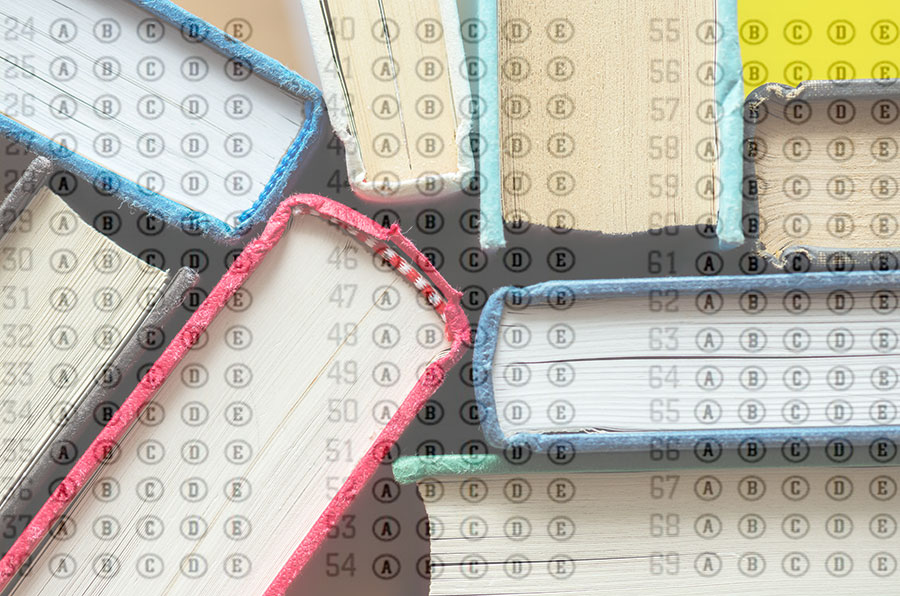Update: No More SAT Subject TestsIn January 2021, the College Board announced it will no longer offer SAT Subject Tests in the United States, effective immediately. Learn how the changes to the SAT Subject Tests will affect students. Our original post on the SAT Subject Tests is below. You have questions—we have the answers. One of the lesser known parts of the college admissions application puzzle are SAT Subject Tests. Because of the nebulous requirements for these college entrance exams at many schools, we often get asked what these tests are and if students need to worry about them for their applications. Our answer: if you are applying to top-tier schools, most will want you to submit some combination of SAT Subject Tests, but only MIT still requires these tests to apply. For most other schools, the test scores can serve as an independent validation that your good grades in a subject were earned in a comprehensive course. What Are SAT Subject Tests?According to the College Board, SAT Subject Tests™ are “subject-based standardized tests that …examines your understanding of material you've been taught in school.” Their value for college admissions professionals is the ability to compare one student’s subject knowledge equally against another’s in another school, school system, or state. MIT has said this “equalizer” effect is why they continue to require them. The hour-long tests are offered in 20 subjects (math, sciences, histories, English, and several foreign languages) and are comprised of tens of multiple-choice questions (each subject varies). Like the general SAT, each exam is scored from 200-800 based on a scaled score that takes into account the number of correct answers as well as the number of incorrect answers. Unanswered questions do not count against your score. The College Board offers them along with the SAT in the same testing centers for six of the national test dates (all except March). Students can take up to three different tests in a day, with some limitations, and can change the tests they are going to take on a registered test day up until time to take the test, again with some limitations. Most students will plan to take them during the June test date because they have recently completed studying for Advanced Placement exams in mid-May and their subject knowledge is still fresh. How Are They Different from AP Exams?The College Board started offering the subject tests around the same time as the SAT, and for many years they were called the SAT II. The College Board also administers the Advanced Placement exams, which are a newer option and have risen in prominence in recent decades. Here are some similarities and differences in the exams:
Use of SAT Subject Tests Is DecliningThere was a time in the not too distant past where a high school senior would be well aware of the SAT Subject Tests needed for their college choices because they were required by most schools as part of an application. This is no longer the case. As recently as 2016, they were still required for Ivy League schools such as Columbia, but those last restrictions have quickly faded, with the last big holdout Cal Tech folding in January 2020. With the decrease in requirements, the number of students taking the subject tests has also declined. Only 220,000 students took one in 2018 compared to the 2.1 million students that took a regular SAT exam that year. The rise of AP courses has also diminished the allure of these tests for most students. Who Should Take SAT Subject Tests?So who should take SAT Subject Tests? Here are our five ideal subject test students.
Sample of School RequirementsThe last holdouts requiring all applicants submit SAT Subject Test scores were MIT, CalTech, Harvey Mudd, and the Webb Institute (a specialized engineering school that does some incredible stuff — check them out). Webb dropped its requirement a few years ago, and Harvey Mudd and CalTech will drop it for 2021 fall freshmen, leaving just MIT. But many schools indicate you should at least consider submitting subject test scores. We recommend that you check each of your target schools’ requirements. It is usually included on the application checklist page for freshmen. Here is a small sample of what schools say about their SAT Subject Test requirements on their admissions pages. Make sure you do this in the spring of your junior year so you can get ready for summer or fall test dates if necessary.
Who Needs to Prep for Subject Tests?In our experience, students in regular or honors courses will greatly benefit from additional prep for an SAT Subject Test. While students in AP courses will see some overlap of material between the tests, we find this is almost never the case for students in other courses. While strategies will differ among the subjects, every student taking a competitive exam should definitely consider additional preparation before taking a subject test. When Should You Prep for Subject Tests?For students taking a science (biology, chemistry, physics) or history (United States or World) test, we recommend you take the June exams. This gives you a chance to get through AP exams and utilize any knowledge gained there before forgetting it over the summer. For other exams, it is really just important that you complete them before applications are due in the middle of senior year. For Math II, students should have completed Algebra II and be comfortable with the concepts covered in Pre-Calculus before taking the exam. Students focused on foreign languages should also be aware that language-with-listening exams are offered just once a year and that administration is switching from November to May for 2021. This means that there will be tests in November 2020 and May 2021, but not November 2021. Current Sophomores should factor this into their plans if foreign language is a future focus of study. Diagnostic Tests AvailableAre you interested in taking an SAT Subject Test but unsure about how you will do? We offer diagnostic tests for all the major subjects every Saturday morning. After the test, we will review your performance and provide a recommendation for whether you should proceed with testing, and if so, which areas to focus on for improvement. Contact us today to get scheduled. SAT Subject Tests at a GlanceTests Offered: Math I & II, Biology E/M, Chemistry, Physics, Literature, U.S. History, World History, Spanish, Spanish with Listening, French, French with Listening, Chinese with Listening, Italian, German, German with Listening, Modern Hebrew, Latin, Japanese with Listening, Korean with Listening
Upcoming dates: The next SAT Subject Test dates are May 2 (register by April 3) and June 6, 2020. AP exams run May 4-15, so the early subject test date may conflict for many students. Tests are offered on national SAT test dates in August, October, November, December, May, and June, but different tests are offered each testing day Fees: Fees are $22 to register for a test day and another $26 per test you take that day. Add $26 if one of those tests are a language-with-listening exam. Score Report/Canceling: Students can opt to cancel their scores at the conclusion of the test or before the following Thursday if they feel they did not perform well. If you do this, no one, not even you, will know the score. If you chose this option, be aware that it will cancel the scores of every test you took that sitting, so use this option only if absolutely necessary. We recommend that students manually order their score reports for the schools they are applying to once they have confirmed the test score is acceptable for submission. Have a question you need answered? Call or email us; we’re always happy to help.
0 Comments
Leave a Reply. |
AuthorAnn Derryberry Archives
March 2024
Categories
All
|
Telephone |
© 2024 Everest Tutors & Test Prep | All Rights Reserved


 RSS Feed
RSS Feed